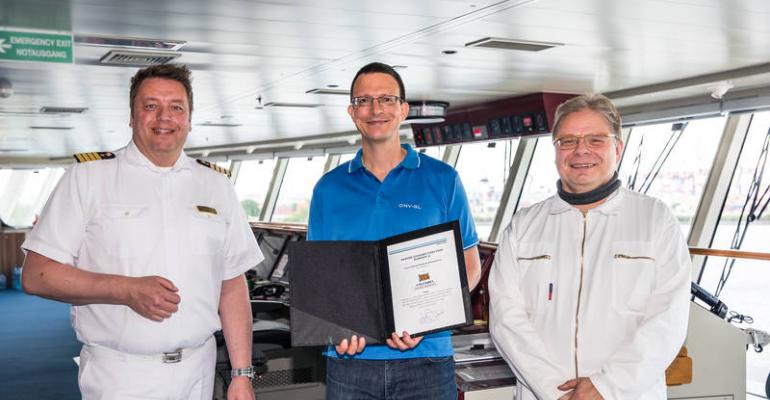The certification is the result of testing the ship’s undisrupted use and compatibility of cold ironing.
Europa 2 has been using shore power at the Hamburg Cruise Center Altona for the past 30 days and was able to save a total of 600 tons of carbon dioxide.
The compatibility of the cold ironing connection at the Cruise Center in Altona was adjusted by Hamburg Port Authority (HPA), as the small Europa 2 requires a lower voltage than the other cruise ships that are using cold ironing there.
2.2 megawatts of power per hour
Hapag-Lloyd Cruises’ luxury ship, with a maximum capacity of 500 passengers, requires 2.2 megawatts of power per hour during its lay time. This reduces the ship’s emissions to practically zero. The electricity used is being supplied by Hamburg Energie and comes from 100% renewable resources.
The settings can be easily duplicated any time the ship makes a stop at the port in future.
‘We are glad that we have been able to make such valuable use of this forced break by driving forward cold ironing and the certification of the Europa 2. The fact that a cruise ship has used cold ironing over a long period of time in Hamburg is an important and unprecedented experience,’ said Karl J. Pojer, CEO of Hapag-Lloyd Cruises.
He continued: ‘Successful use of cold ironing is another important part of our environmental strategy. We use marine gas oil with a low 0.1% sulphur content in the whole fleet, all over the world, thereby going beyond the legal requirements.’
Copyright © 2024. All rights reserved. Seatrade, a trading name of Informa Markets (UK) Limited.
Add Seatrade Cruise News to your Google News feed.  |

